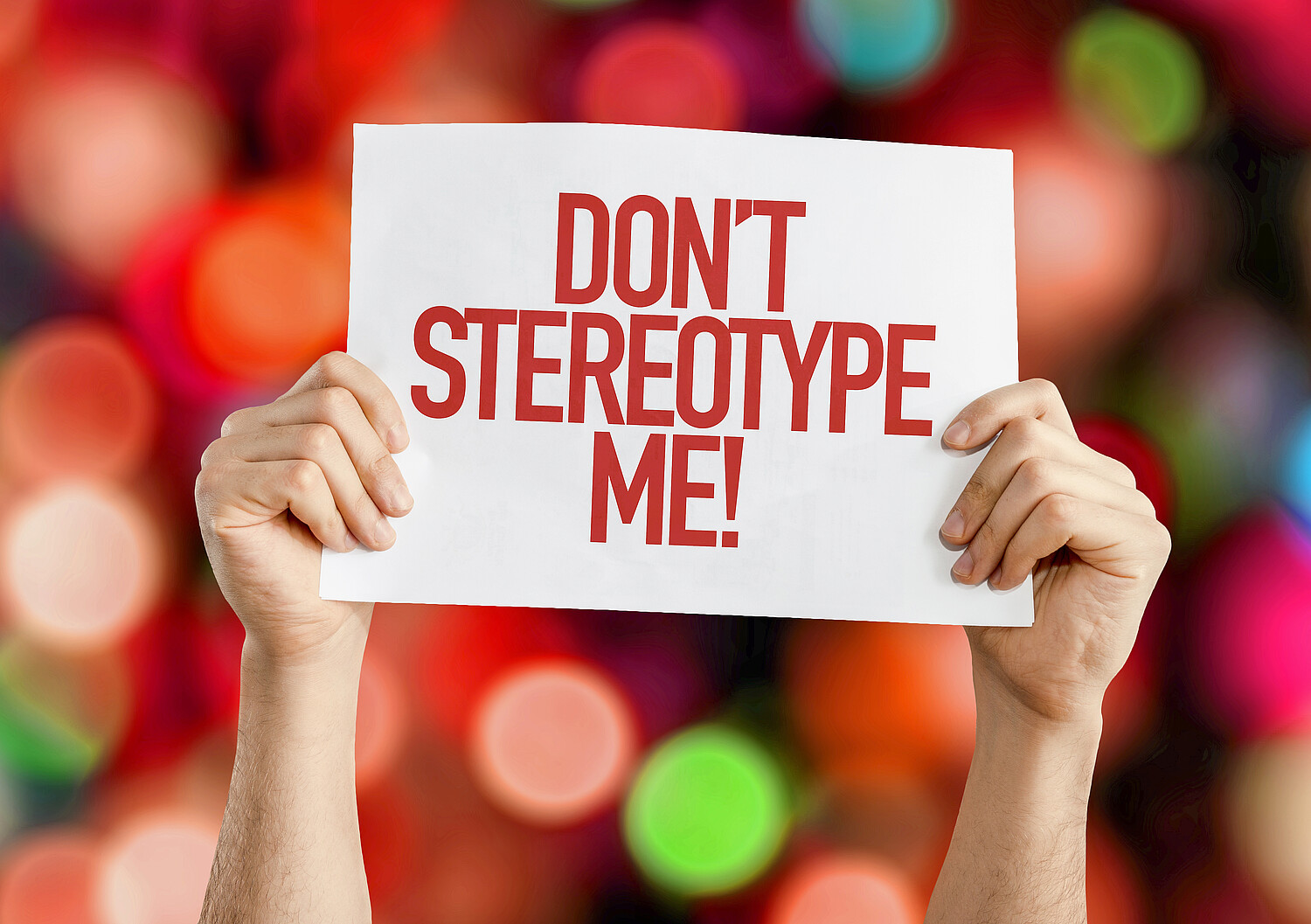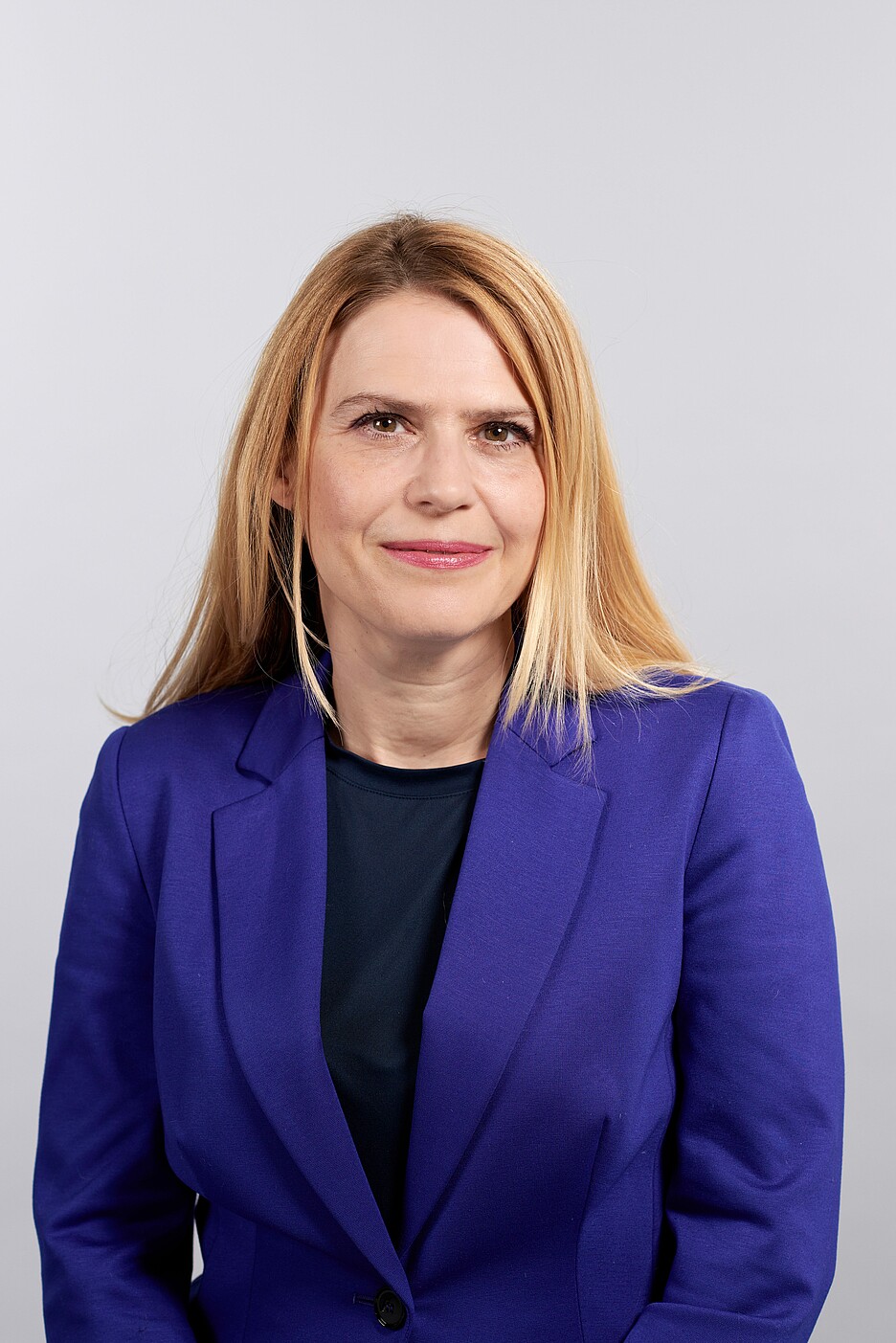
Biases can have fatal consequences
Learned stereotypes shape our thinking. In medical settings, they can result in patients with identical complaints receiving different treatment. “Being aware that this may be the case represents the first step in reducing discrimination,” says Ursula Meidert, who researches the phenomenon of unconscious bias.
Overweight individuals are considered to lack discipline. Immigrants are thought more likely to be criminals than natives. Men are more likely to be seen in the role of boss than women. Our brains make associations at lightning speed. While some attributions are made at a conscious level, others are made unconsciously. "Such deep-rooted thought patterns influence our behaviour,” says Ursula Meidert from the Institute of Public Health.
In the healthcare sector, biases can have fatal consequences. For example, patients may be treated differently depending on their physical characteristics or attributes and suffer health disadvantages as a result. “This goes against the principle that people with the same medical conditions should receive the same treatment.”
Over the past two years, the sociologist has looked at the topic in depth as part of a 40% research position. She has come to the conclusion that so-called unconscious biases are widespread in the medical sector. And it is not only among doctors that they are apparent, but also among nursing staff. Other groups within the medical profession have thus far received less attention from the research community. The studies that are available, however, document the existence of biased thinking among specialists working in the fields of occupational therapy, physiotherapy and midwifery. “There are no discernible differences.”
Stereotypes save the brain work
Such rapid categorisations save the brain from having to work when making recurring decisions. They provide guidance in the face of uncertainty and serve as a kind of shortcut. “This ability is likely an evolutionary development that is intended to help ensure our survival,” says Ursula Meidert. She shares her view that “it is interesting to see the power that unconscious attitudes can yield. We think that we are acting in a logical manner. However, the research clearly shows that this frequently isn’t the case.”

“We think that we are acting in a logical manner. However, the research clearly shows that this frequently isn’t the case.”
Attributions are first and foremost based on what somebody looks like as well as how they present themselves and communicate. They are based on characteristics such as skin colour, gender, age, weight and socio-economic status. Meidert opines that “certain stereotypes are universal.” It is indeed a fact that women are perceived differently around the world to their male counterparts. For example, they are categorised by healthcare professionals as being more sensitive to pain. This means that they have to wait longer before they are prescribed painkillers and are issued less potent medication. Women are called in for additional investigations less frequently than men with the same complaints. Their ailments are also more likely to be labelled psychosomatic.
Discrimination based on origin
Somebody’s place of origin can also give rise to discrimination. Racial prejudices are well documented in the US, where people of colour are examined and treated less extensively than white people. They are at a higher risk of severe disease progression and die at a younger age. Such disadvantages are due to both historical and cultural judgements learned through the process of socialisation.

Negative attitudes towards other ethnic minorities can also be observed in other parts of the world. In Switzerland, this affects migrants from the former Yugoslavia, for example. “Medical staff do not discriminate consciously,” says Ursula Meidert, who states that the clearer a diagnosis is, the less often unconscious attitudes will come into play. If, for example, an artificial knee is to be fitted, a person’s origin is irrelevant.
Time pressure makes us prone to thinking in categories
Ursula Meidert goes on to opine that the situation is different in cases in which there is uncertainty, for example in instances in which the cause of pain cannot be clearly pinned down. In these scenarios, she adds, other aspects of the person in question that have nothing to do with the illness come into play, including their gender and origin. “The more decisive the communication is, the greater the impact of unconscious bias.” Studies also reveal that a high cognitive load, time pressure and fatigue all play a role. They make people more prone to acting according to learned categorisations.
“Questioning yourself and knowing your own stereotypes represents the first step towards less discrimination.”
Those who want to analyse their own thought patterns can complete an implicit association test (IAT). A wide range of such tests that take various factors into consideration can be found online. Meidert recommends that students on the “Health and Gender” module address the issue of gender stereotypes. “Questioning yourself and knowing your own stereotypes represents the first step towards less discrimination,” says the lecturer. The actions of healthcare professionals should be guided by facts wherever possible. They should take their time when making diagnoses, put themselves in the patient’s shoes and, should they be unsure about anything, talk to another professional. “This is how you achieve better patient assessments.”
Diverse teams and a code of conduct
The scientist argues in favour of forming teams whose members have different backgrounds, thus allowing for different influences and perspectives to be represented in decision-making processes. Within such constellations, employees would have the opportunity to exchange ideas with people from other walks of life and learn from each other. “Better decisions are thus taken.” Ursula Meidert says that it is also important that institutions undertake to treat all patients equally in a code of conduct, as this provides guidance. The topic should be given greater priority in the areas of training and continuing education, while employees need to be trained in how to communicate with vulnerable groups, such as minorities.
In her next study, Ursula Meidert wants to investigate how widespread unconscious bias is among healthcare professionals in Switzerland. At the Institute of Public Health, she has already suggested that assessments no longer be labelled with the students’ names, but rather with their matriculation number. At an internal event in December, further discussions are to be held on where learnt stereotypes occur during everyday university life and what can be done to counter them. “Everyone has unconscious biases,” she says, before adding that what is crucial is becoming aware of them and dealing with them in a good way.
0 Comments
Be the First to Comment!